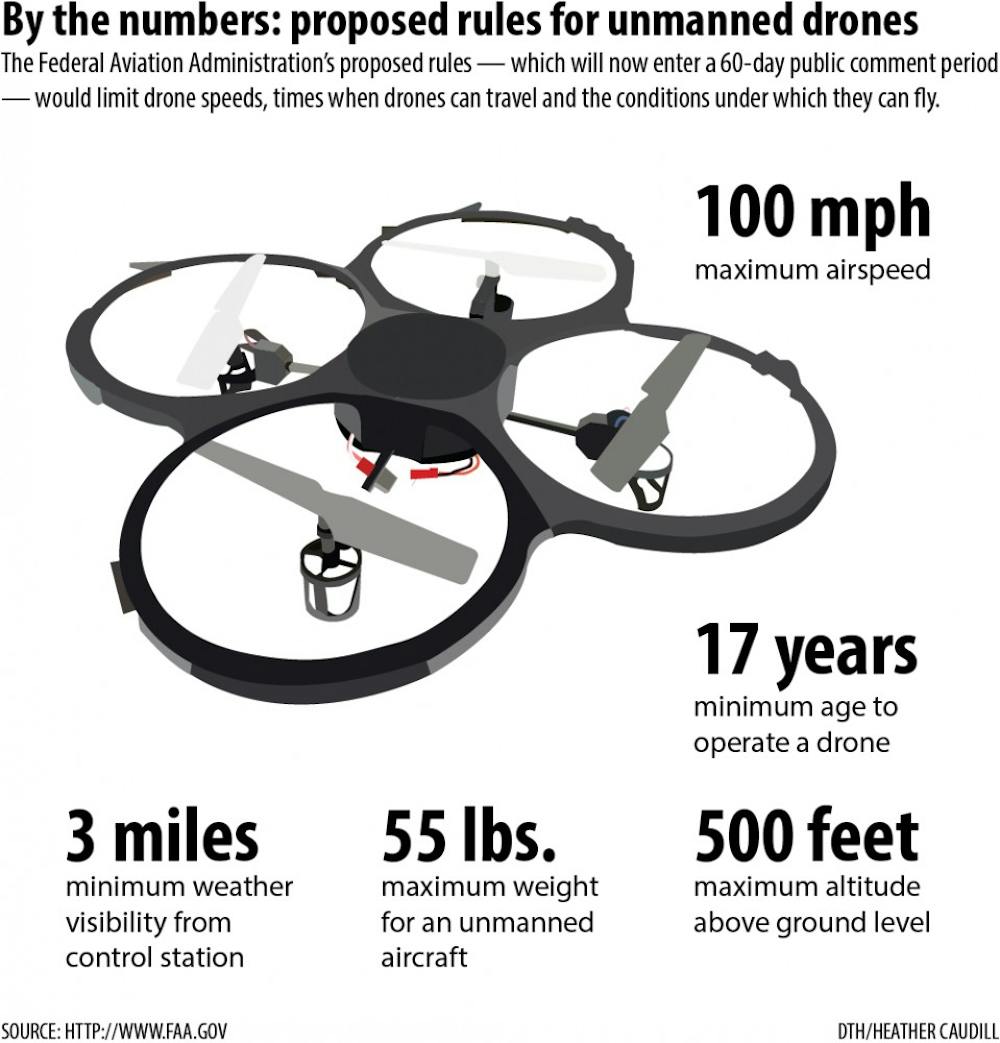The N.C. General Assembly considered a bill regarding drone regulations in 2013, but it failed to pass the Senate.
The current regulations in North Carolina were added as a rider to the 2014-15 state budget — meaning it was an amendment that had little to do with the original bill. Meno said getting the rules passed as a rider meant the rules lacked a level of vetting that most legislation sees.
Police using a drone wouldn’t need a warrant to use that drone on an event “open to the public,” a term that is not defined further, he said. And there are far too many opportunities to perform surveillance without a warrant, he said.
“Does an event ‘open to the public’ mean if I have a neighborhood block party and I invite everyone in my neighborhood over, that now law enforcement can fly a drone over?” he said.
A second concern with the N.C. rules, Meno said, is that private citizens like artists or journalists would be unable to use drones in their work.
“We want a balancing law that not only protects people’s privacy, but also protects their First Amendment rights to use drones for certain purposes,” he said.
Gary Roberson, a biological engineering professor at N.C. State University, said drones would be useful for monitoring crops on North Carolina farms. The average farm size in the state is around 150 acres, and Roberson said that conventional means of collecting information on crops can be difficult and time consuming.
“Satellite images can take two to three weeks, but a lot of the time a farmer needs to make a management decision in days,” he said.
Crops such as cotton, peanuts and vegetables, as well as livestock herds, would benefit greatly from drone surveillance, Roberson said. Drones could be used to control the spread of diseases and apply water.
Although drone regulation is fairly new within U.S. borders, they have been causing controversy for several years for overseas military operations in countries like Yemen and Pakistan.
Major Gen. Charles Dunlap Jr., a law professor at Duke University, said a frequent point of concern is where drones are used outside of areas of active hostility.
The U.S. has used drones for surveillance and targeted military strikes against enemy combatants. Dunlap said while he supports using drones abroad, he is against military resources crossing into the domestic sphere, except under necessary circumstances.
To get the day's news and headlines in your inbox each morning, sign up for our email newsletters.
“For example, the Coast Guard looking for a lost child,” he said. “But for other sorts of uses such as border enforcement, controlling the roads or surveying a drug deal, I don’t think the military should be used for that purpose.”
state@dailytarheel.com




